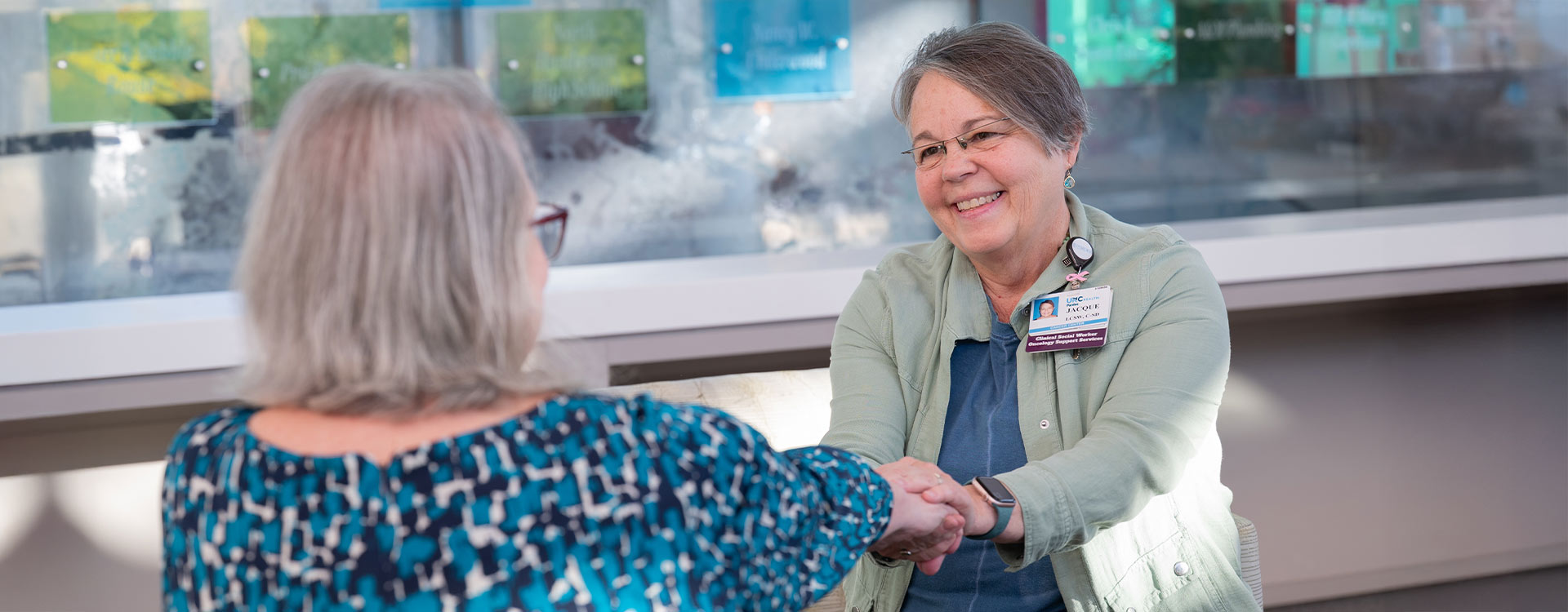Although breast, cervical and ovarian cancer are important to women, heart disease is every woman’s greatest risk. Heart disease is the No. 1 killer of women in the United States. It is responsible for one in three deaths among women. Learn how women experience heart attacks differently. While chest discomfort is a common one, there are other signs and symptoms that are unique to women. The good news is that you can lower your risks. First, talk to your doctor about your personal risks and what you can do to lower them.
What is a Heart Attack?
A heart attack occurs when blood flow to the heart is blocked by plaque buildup in the arteries.
The most common heart attack symptoms
The most common heart attack warning signs in both women and men are chest discomfort. It is often described as pressure, tightness, squeezing, or fullness in the center of the chest. It can radiate through to your back. Nausea and shortness of breath can be present as well.
The discomfort will often get worse with movement or exercise, then improve with rest. It might wake you at night.
Heart Attack Symptoms in Women
Women are more likely than men to experience heart attack symptoms unrelated to chest pain. Some don’t have any chest pain at all.
These symptoms can include pain in the arm, neck, jaw, upper back or stomach, unusual fatigue or weakness, shortness of breath, cold sweats, heartburn or indigestion, nausea or vomiting, lightheadedness, dizziness, and rapid or irregular heartbeats. These symptoms are often mistaken for something else, like the flu, hot flashes, heartburn, or stress.
Because the symptoms are not typical, and because they don’t want to cause a disruption at home or work, many ignore the symptoms, only to find out later that they had a heart attack.
Don’t ignore these – your family needs you healthy and well.
When to Get Help
Some people experience warning symptoms for weeks before they have a heart attack. If you notice anything unusual or that doesn’t feel quite right, trust your instincts, and contact your primary care provider.
If you think you are having a heart attack, call 911 immediately. Heart attack symptoms typically build up over 5-20 minutes and get progressively worse. Please do not drive yourself or have someone else drive you. Using EMS is an important part of getting the right treatment.
Know how to ask for the right help. Be familiar with the Emergency Medical Services (EMS) and hospitals in your area. The first 90 minutes are critical when treating a heart attack.
Pardee was recently designated as a Percutaneous Coronary Intervention (PCI) Hospital to provide 24/7 ST Elevation Myocardial Infarction (STEMI) care. This designation means patients in our area are now closer to advanced, life-saving cardiac treatment during a heart attack. It also makes Pardee one of only two hospitals in western North Carolina that provide this level of care.
How to Prevent a Heart Attack
The good news is that up to 80% of cardiac events, like heart attacks, can be prevented.
We encourage all women and men to “know their numbers.” This includes their cholesterol, blood pressure, body mass index (BMI) and blood sugar. The higher the numbers, the greater the risk.
We also recommend knowing your family history. If you have a close relative with heart disease at an early age your risk may be higher.
You have control. Taking care of your body is essential. Don’t smoke (if you currently smoke, talk to your primary care provider about quitting), eat a heart-healthy diet (plenty of vegetables, lean protein, healthy fats, fruit, and whole grains), manage your stress level, get plenty of sleep and be physically active. Exercising 30 minutes a day can decrease your risk of heart attack and stroke.
To learn your numbers and develop a plan to prevent heart disease, schedule an appointment with your primary care provider. To find a provider near you, visit pardeehospital.org/primarycare.
Learn more about the quality of heart attack care at Pardee at pardeehospital.org/heartscantwait.




